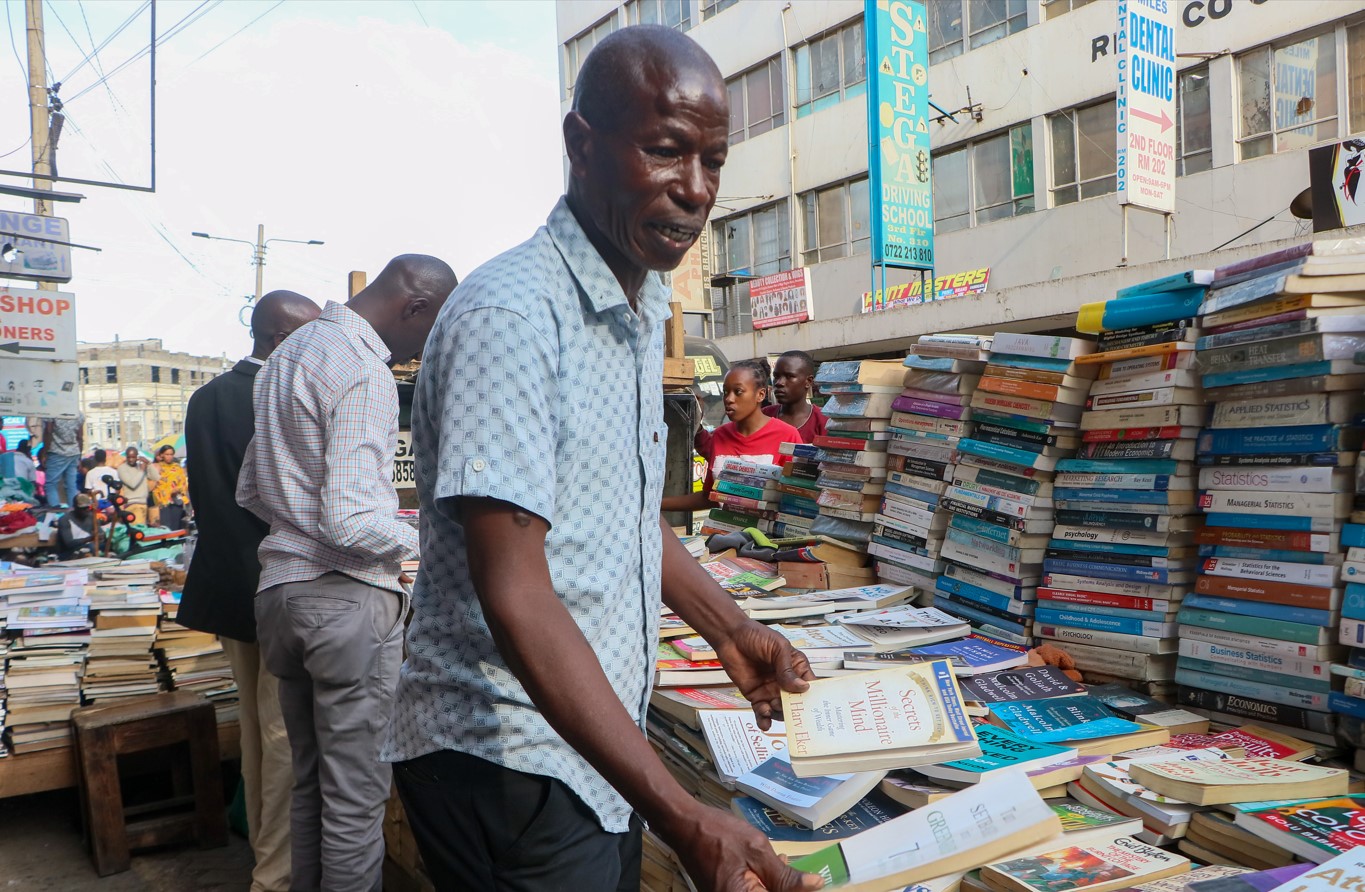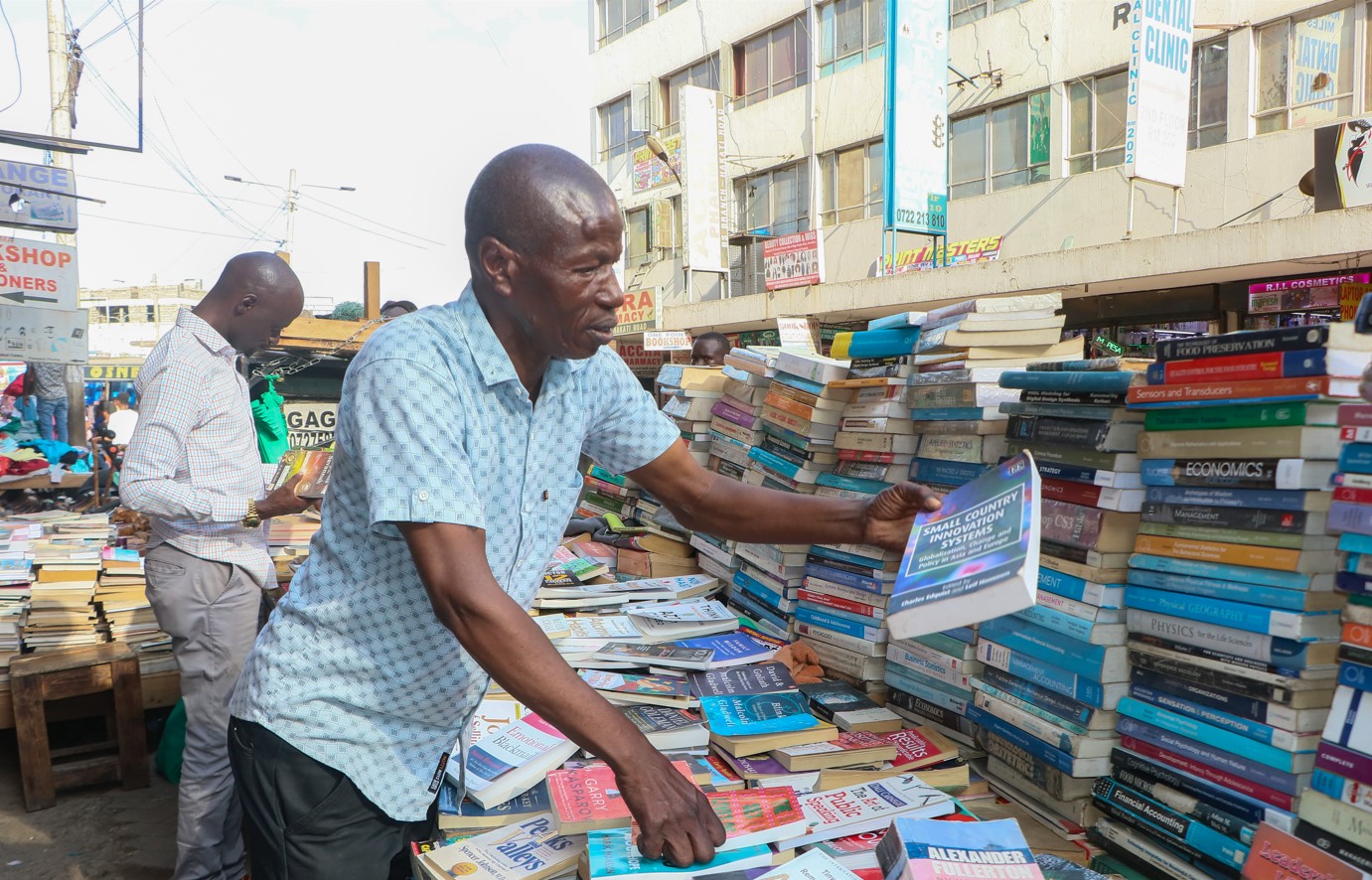Nairobi street bookseller's secret of 20 years in trade unfazed by digitisation

The question of whether Kenyans are reading and what kind of literature they are reading was central to Gagai's interesting conversation.
Mfang'ano Street in downtown Nairobi is ever busy because of the public transport vehicles scrambling for passengers. There is also an array of hawkers and vendors shouting themselves hoarse in desperate moves to earn a living.
Noticing Kenneth Gagai's voluminous books along Mfang'ano Street is not difficult. The books are carefully arranged in blocks, and Gagai is always either conversing with a customer in need of a work of fiction or a school text.
More To Read
- Top 10 most used languages for web content
- Chimamanda Ngozi Adichie honoured with two European literary awards
- NoViolet Bulawayo wins the best of 25 years of the Caine Prize: Why she deserves it
- Africa’s Sh905 billion book industry faces challenges despite growth potential - UNESCO
- Kenya Publishers Association honours Ngugi wa Thiong’o with Hall of Fame induction
- New trend: African novels being translated into English for wider readership
At 59, Gagai, who has sold second-hand books for the last 20 years, is not about to stop.
"I have been selling books for more than 20 years. To sell books, one must love reading them and acknowledging their ability to enrich brains," says Gagai.
Before venturing into vending books, Gagai was a newspaper and magazine seller in Nairobi. When The Eastleigh Voice visited him, he narrated how his love for reading drove him to sell books.
"I loved reading books while growing up. It is out of this that I realised that I can sell books to other people who equally love reading," says Gagai.
He sells different types of books. He has fiction and nonfiction books. In the fiction section, there are countless titles under fantasy, science, mystery, historical and literary fiction.
Gagai's clients range from young book lovers seeking to savour the works of legendary authors such as Sidney Sheldon or John Grisham. Others also come for the works of African authors such as Chinua Achebe, Camara Laye or Ngugi wa Thiong'o.
"I price my books fairly. They range from Sh250 to Sh2,500 depending on which book a client wants. I accord them the opportunity to bargain, which is not found in bookshops," quips Gagai.
 At 59, Gagai, who has sold second-hand books for the last 20 years, is not about to stop. (Photo: Barack Oduor)
At 59, Gagai, who has sold second-hand books for the last 20 years, is not about to stop. (Photo: Barack Oduor)
Research work
Another category of his customers are scholars and researchers who troop to him to look for literature for their research work and scholarly studies. They come to look for academic publications in history, science, geography, medicine and other fields.
Where does he source his books?
Gagai gets books from Kenyans who want to dispose of their collections. He buys them off and also receives them as gifts from whoever wants to give them away. He also orders books that have arrived in the country as second-hand.
The question of whether Kenyans are reading and what kind of literature they are reading was central to Gagai's interesting conversation.
"The notion that Kenyans are not reading is false and misleading because they come here to buy all kinds of books. We can say that they have been dogged by the high cost of living that has not made them prioritise reading but not that they are ignorant."
Gagai acknowledges that digital emancipation has greatly affected how people consume literature today. He says the availability of audiobooks and the emergence of social media is also greatly eating into the profits of booksellers, but he's surging ahead, knowing that there are still Kenyans who prefer hard copies.
To sell books in the streets of the city, Gagai says one needs to be permitted by the Nairobi County authorities. To reach as many customers as possible, he also has an online presence where books in his store are posted.
"When a client in Mombasa needs a book, I package it well and send it. The possibility of sending books to anywhere in the country is also earning me more clients."
Top Stories Today












































